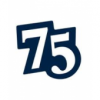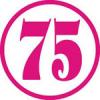
During her short career Martine Rose has been featured at London Fashion Week, by Topman, been on the cover of Dazed & Confused and featured in British Vogue. Throughout her three successful seasons leading her self-titled label her collections have been continually well-received by press and industry leaders alike. Martine has led her label to success with her trademark pieces: her incredibly unique men's shirts, outerwear and footwear.
">http://www.youtube.com/watch?v=SW6D1TaIBnI]
Before creating her accomplished self-titled collections Martine helped found another fortuitust label, the highly-acclaimed LMNOP—an interesting label with cult-like fan bases in London and Tokyo.
Needless to say Martine is a major coup to our Interview Series. During our virtual chat with Martine she helped define her label, successes and how our aspiring-designer readers can transpose that success onto their own careers:
How did you get your foot into the door of the fashion industry? (aka what was your first job and how did you get it?)
I started by interning for magazines, built up a couple of contacts there and gained some understanding of how press worked etc, and from there started a label with a friend.
What is your current focus/role within the industry?
I'm a menswear designer. My current focus is building a successful fashion brand.
What type of education did it take to get you where you are today?
I have a foundation course and a BA Hons in Fashion Design.
How has your career path progressed over the years?
Slowly, fits and starts, wiggly!. It takes time to build anything, I have basically always worked for myself with other jobs to support me, bar work, styling, teaching. It has taken a lot of sacrifice, there are very few real shortcuts, or short cuts that pay off in the long run anyway.
If you had it to do all over again what would you do differently, change or improve?
Nothing really, this has been my path. I probably would have used the resources at college more, because you never get to work with such an abundance of equipment and technicians again. Also, I could have paid more attention to pattern cutting perhaps.
What is your favorite part of working in the fashion/design business?
Designing, working with really inspiring people, building a strong team.
What advice would you give to aspiring fashionistas?
Look around you, your peers in college are likely to be your colleagues. The industry is small so keep contacts, keep friends make as few enemies as possible.
What is the most important skill or hard lesson you have learned while working in the industry?
The ability to work alongside a host of people, some who you will get on with, some not and being able to cope with huge personalities and huge ego's, no different to other creative industries I suppose.
What was most surprising about working in the fashion industry?
On the whole everyone is really supportive of each other.
What school(s) does your company generally recruit new hires from? And, do you accept interns?
I advertise on university of the arts so it really can be from everywhere. There definitely isn't 1 college in particular.
What designer(s) or brand(s) influenced you the most as a creative professional?
The usual ones, Raf Simmons, Comme des Garcons, Helmut Lang, Junya Watanabe but also smaller brands some that don't exist anymore P.O. BOX, Copperwheat Blundell, John Paul Gaultier, Christopher Shannon, Lou Dalton, Louise Gray, Richard Nicoll.
Do you think today's jobs in the fashion industry require more of an artist's touch or business-like ruthlessness?
It depends what jobs in the fashion industry. As a designer you can't compete with the high street for price, so whilst my initial response would have been business like ruthlessness, the only way to really compete as a designer, is to push the boundaries more, to create something the high street can't, which is real ingenuity, be really brave. Of course this still has to work as a business so both are still valuable and have their place.
Which skill(s) do you consider to be most critical for a career in fashion?
People skills. Definitely people skills.
What would you recommend for aspiring fashion professionals looking to break into today's fashion industry?
Get as many practical skills as possible under your belt: pattern cutting, computer skills (illustrator, Photoshop, Indesign), sewing, embroidery and print. Also, do short business courses. They will always be relevant, you will always be paid for having these skills, you can bring them into most job roles and they can open other avenues to you that you would never have considered otherwise.
Check out more interviews at The Fashion-Schools.org Interview Series.





